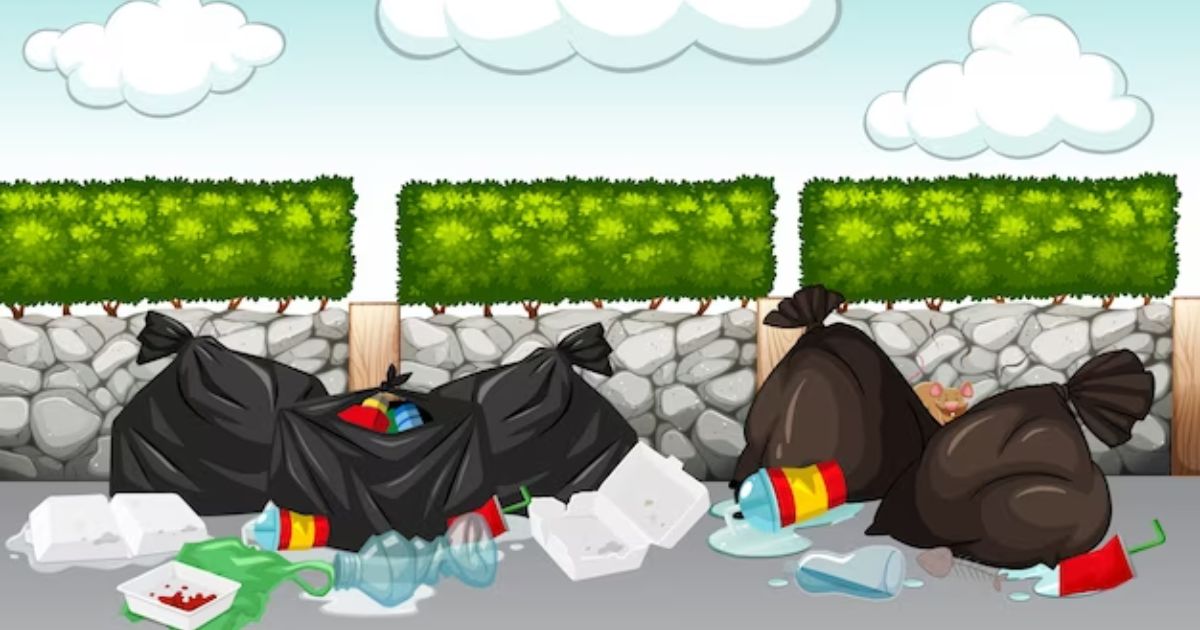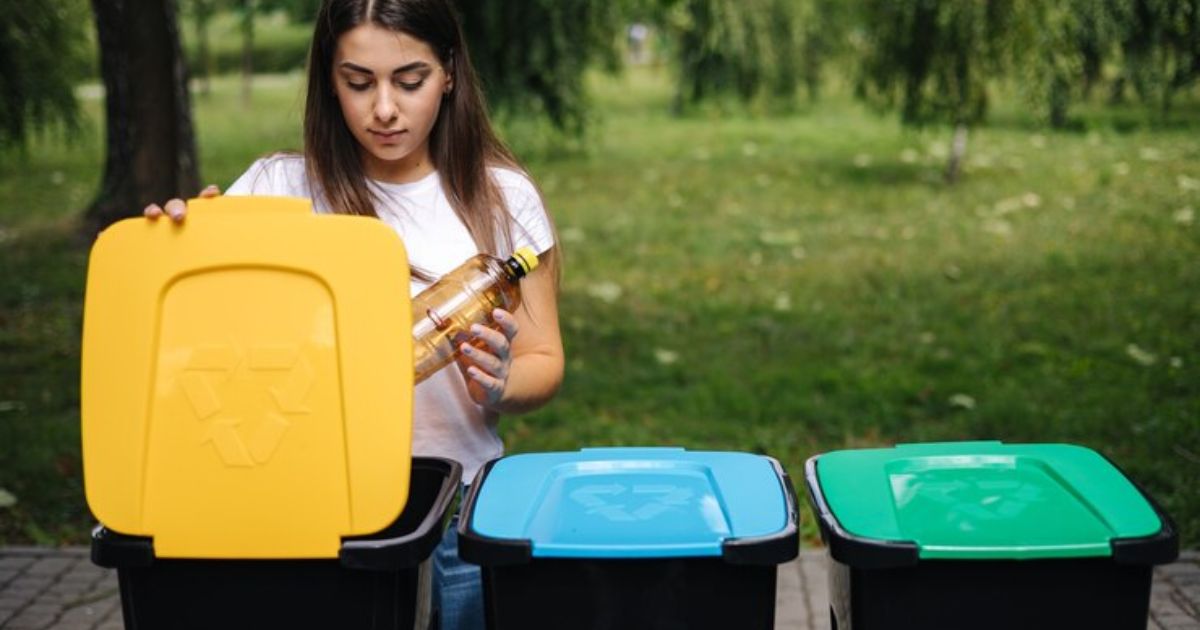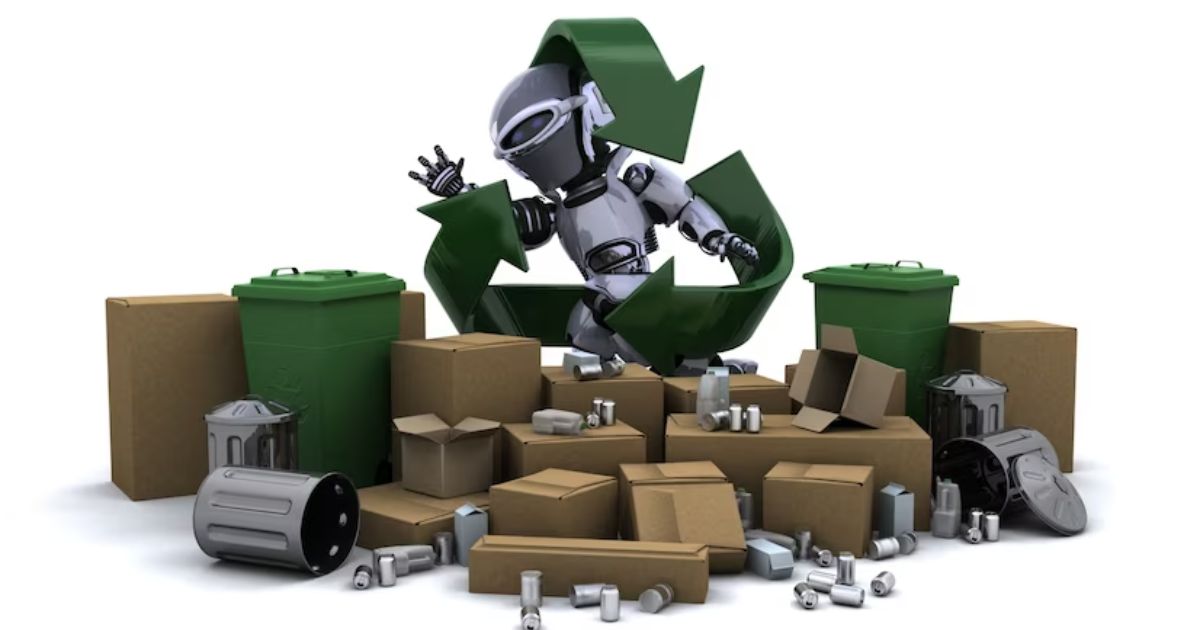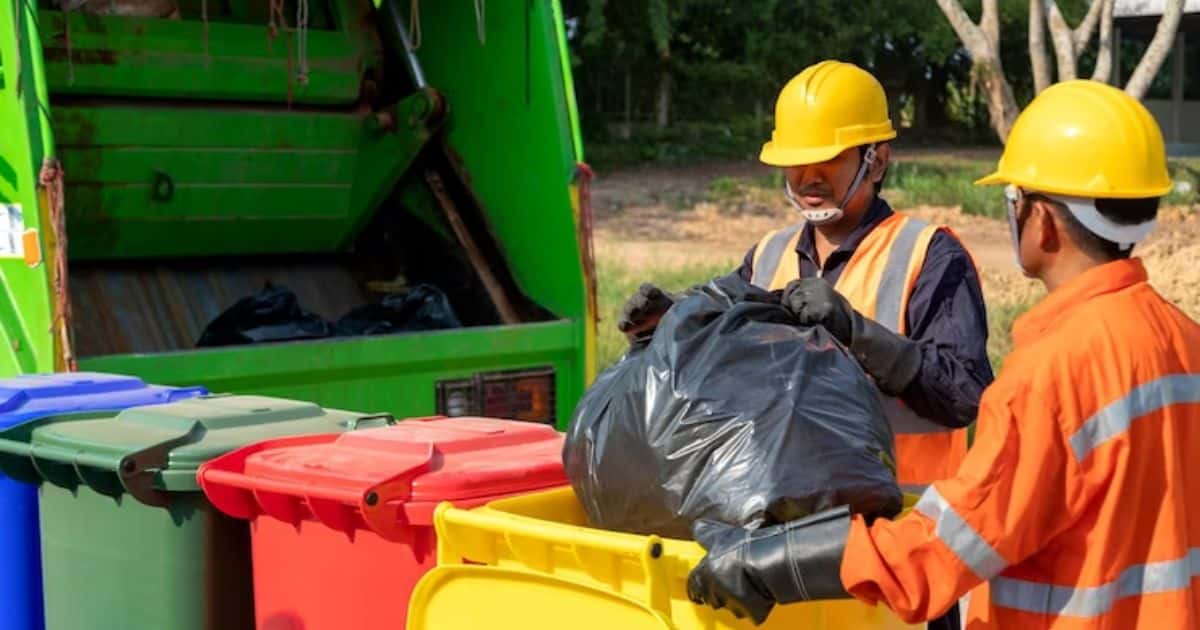In the quest for a cleaner and more sustainable future, waste management has emerged as a critical area of focus. As the adage goes, “when the trash takes itself out,” technological advancements have brought us closer to this ideal. Through the development of smart trash cans and robotic garbage collectors, waste disposal is being revolutionized. In this article, we will explore the benefits, environmental impact, and future possibilities of self-operating trash systems, fostering a sense of belonging to a community dedicated to a greener planet.
Key Takeaways
- Advancements in waste management technology, such as smart trash cans and robotic garbage collectors, are simplifying waste management processes.
- Self-taking trash systems eliminate the need for individuals to physically handle and transport garbage, minimizing exposure to unpleasant odors, pests, and health hazards.
- Technological challenges, such as sensor accuracy and connectivity issues, need to be addressed through research and development efforts and collaboration between technology companies, waste management experts, and researchers.
- Infrastructure adaptation, including modifying existing infrastructure and collaborating between waste management organizations and infrastructure agencies, is crucial for the implementation of self-taking trash systems.
Smart Trash Takes Cans
Smart trash cans have revolutionized waste management by incorporating advanced technology and automated features. These innovative waste bins are equipped with sensors that detect when the trash can is full, triggering an automatic compaction system.
This ensures maximum utilization of the available space, reducing the frequency of emptying and optimizing efficiency. Smart trash cans are equipped with odor control mechanisms, keeping unpleasant smells at bay and maintaining a clean and hygienic environment.
These bins can be connected to a central monitoring system, allowing waste management authorities to track the fill levels of each bin and optimize collection routes. By implementing smart trash cans, communities can enjoy a more streamlined waste management process, ensuring a cleaner and more sustainable living environment for all residents.
Robotic Garbage Collectors
Robotic garbage collectors have further advanced waste management by automating the process of collecting and disposing of trash, seamlessly building upon the advancements made by smart trash cans. These innovative machines have revolutionized the way we handle waste, offering numerous benefits to both individuals and communities. Here are some noteworthy features of robotic garbage collectors:
- Efficient collection: These robots are equipped with advanced sensors and cameras, allowing them to navigate complex environments and collect trash with precision.
- Increased productivity: Robotic garbage collectors can work tirelessly, reducing the time and effort required for manual garbage collection.
- Improved safety: By eliminating the need for human intervention, these robots minimize the risk of accidents and injuries associated with traditional garbage collection methods.
- Environmental impact: These machines are often electrically powered, resulting in reduced emissions and contributing to a cleaner and healthier environment.
With the advent of robotic garbage collectors, technological innovations in waste management have taken a significant leap forward, providing us with a glimpse of a future where waste disposal is seamlessly integrated into our daily lives.
Technological Innovations in Waste Management
Technological advancements have revolutionized waste management, offering innovative solutions that streamline the disposal process and promote a cleaner and more sustainable future. The table below highlights some of the notable technological innovations in waste management:
| Innovation | Description |
|---|---|
| Smart Bins | These bins are equipped with sensors that monitor the waste level and optimize collection routes, reducing unnecessary pickups and saving time and resources. |
| Waste-to-Energy | This technology converts waste materials into energy, reducing landfill space and generating electricity or heat. It helps reduce greenhouse gas emissions and promotes a circular economy. |
| Automated Sorting Systems | These systems use advanced sensors, robotics, and artificial intelligence to efficiently sort recyclable materials, improving recycling rates and reducing contamination. |
These technological advancements not only enhance the efficiency of waste management processes but also contribute to environmental sustainability. By embracing these innovations, communities can create a sense of belonging by actively participating in waste reduction efforts and working towards a cleaner and greener future.
Benefits of Self-Taking Trash
One significant advantage of self-taking trash is its ability to greatly simplify waste management processes. With this innovative technology, individuals no longer have to worry about the hassle of taking out the garbage themselves. Instead, the trash bins are equipped with sensors and mechanisms that autonomously transport the waste to designated collection points. This brings several benefits for both individuals and communities:
- Convenience: Self-taking trash eliminates the need for individuals to physically handle and transport heavy garbage bags, saving time and effort.
- Hygiene: The automated system minimizes the risk of exposure to unpleasant odors, pests, and potential health hazards associated with handling waste.
- Efficiency: By streamlining waste collection, self-taking trash optimizes the overall waste management process, reducing delays and increasing productivity.
- Aesthetics: With self-taking trash, the streets and public spaces appear cleaner and more organized, enhancing the overall sense of belonging within the community.
As we explore the benefits of self-taking trash, it is essential to also consider its environmental impact, which will be discussed in the subsequent section.
Environmental Impact of Automated Waste Disposal
The implementation of self-taking trash technology has not only revolutionized waste management processes but also brought about significant environmental benefits. By automating waste disposal, this technology reduces the need for manual collection, which in turn decreases the carbon emissions associated with garbage trucks.
Self-taking trash systems often incorporate advanced sorting and recycling capabilities, leading to a higher percentage of recyclable materials being diverted from landfills. This reduces the strain on natural resources and minimizes the environmental impact of waste disposal.
Furthermore, automated waste disposal systems prevent the occurrence of overflowing bins, which can attract pests and result in unsightly and unsanitary conditions. Overall, the environmental impact of automated waste disposal is substantial and contributes to a more sustainable and cleaner future.
| Environmental Benefits | Automated Waste Disposal |
|---|---|
| Reduces carbon emissions from garbage trucks | |
| Increases recycling rates and reduces landfill usage | |
| Prevents overflowing bins and associated issues | |
Advancements in Trash Sorting and Recycling
Trash sorting and recycling have seen significant advancements in recent years. As the world becomes more conscious of the environmental impact of waste, innovative technologies and practices have emerged to improve the efficiency and effectiveness of recycling processes. Here are some notable advancements in trash sorting and recycling:
- Optical sorting systems: These systems use advanced sensors and artificial intelligence to identify and separate different types of recyclable materials, such as plastics, paper, and metal.
- Robotics and automation: Robots are now being employed to sort and separate recyclable items quickly and accurately, reducing human error and increasing productivity.
- Chemical recycling: This technique enables the conversion of plastic waste back into its original chemical components, allowing for a more efficient recycling process with fewer quality limitations.
- Waste-to-energy technologies: Advanced systems can convert non-recyclable waste into energy, reducing the reliance on fossil fuels and minimizing landfill waste.
These advancements in trash sorting and recycling contribute to the sustainable management of waste and the promotion of a circular economy, where resources are reused and repurposed, ultimately creating a cleaner and healthier planet for all.
Future Possibilities of Self-Operating Trash Systems
Advancements in waste management technology have opened up possibilities for the development of self-operating systems. Imagine a world where trash bins automatically sort and dispose of waste without human intervention.
This future is not as far-fetched as it seems. Self-operating trash systems hold great potential in revolutionizing waste management and creating cleaner and more sustainable environments. These systems could use artificial intelligence and sensors to identify and sort different types of waste, ensuring that recyclable materials are properly recycled and non-recyclable waste is disposed of in an environmentally-friendly manner.
By automating the process, self-operating trash systems can reduce human error, increase efficiency, and minimize the need for manual labor. However, before we can fully embrace this technology, there are several challenges that need to be addressed, and potential solutions that must be explored.
Challenges and Potential Solutions in Implementing Self-Taking Trash
Implementing Waste Management System presents several challenges that require careful consideration and innovative solutions. The following are some of the challenges that need to be addressed in order to successfully implement these systems.
- Technological Limitations: Developing a reliable and cost-effective self-taking trash system requires overcoming technological barriers such as sensor accuracy, battery life, and connectivity issues.
- Infrastructure Adaptation: Existing infrastructure may need to be modified or upgraded to accommodate self-taking trash systems, including retrofitting trash cans and installing charging stations for autonomous trash collectors.
- Environmental Considerations: Ensuring that self-taking trash systems do not harm the environment is crucial. This includes addressing issues such as noise pollution, energy consumption, and managing waste separation and disposal.
- Public Acceptance and Participation: Encouraging public acceptance and participation is essential for the success of self-taking trash systems. This involves educating and engaging the community, addressing concerns about privacy and security, and promoting a sense of ownership and responsibility.
FAQ’s
How Do Smart Trash Cans Work and What Features Do They Have?
Smart trash cans utilize various technologies such as sensors, IoT connectivity, and AI algorithms to enhance waste management efficiency. They can automatically detect and categorize different types of trash, monitor fill levels, and even schedule waste pickups for optimized waste collection processes.
What Are the Advantages of Using Robotic Garbage Collectors Over Traditional Manual Collection Methods?
Robotic garbage collectors offer several advantages over traditional manual collection methods. They increase efficiency, reduce labor costs, and improve safety by minimizing human involvement. Additionally, they can operate autonomously, allowing for continuous waste management without interruption.
What Are Some of the Latest Technological Innovations in Waste Management?
Some of the latest technological innovations in waste management include smart waste bins that use sensors and data analytics to optimize collection routes, waste-to-energy conversion systems, and advanced recycling technologies. These advancements aim to improve efficiency and sustainability in waste management processes.
How Does the Self-Taking Trash System Benefit Individuals and Communities?
The self-taking trash system revolutionizes waste management by providing convenience and efficiency. This innovative technology benefits individuals and communities by freeing up time, enhancing cleanliness, and promoting sustainability, leading to a more harmonious and prosperous environment.
What Are the Environmental Benefits and Drawbacks of Automated Waste Disposal Systems?
Automated waste disposal systems have both environmental benefits and drawbacks. On the positive side, they can reduce landfill waste and improve waste management efficiency. However, they may also require significant energy and resources for their operation and maintenance.
Conclusion
In conclusion, the advancements in self-taking trash systems and automated waste disposal present promising solutions to the challenges of waste management. These technological innovations not only improve efficiency and convenience but also have a significant positive impact on the environment.
According to a recent study, implementing robotic garbage collectors can reduce CO2 emissions by up to 80%. As we continue to explore and develop these solutions, we can strive towards a cleaner and more sustainable future.











